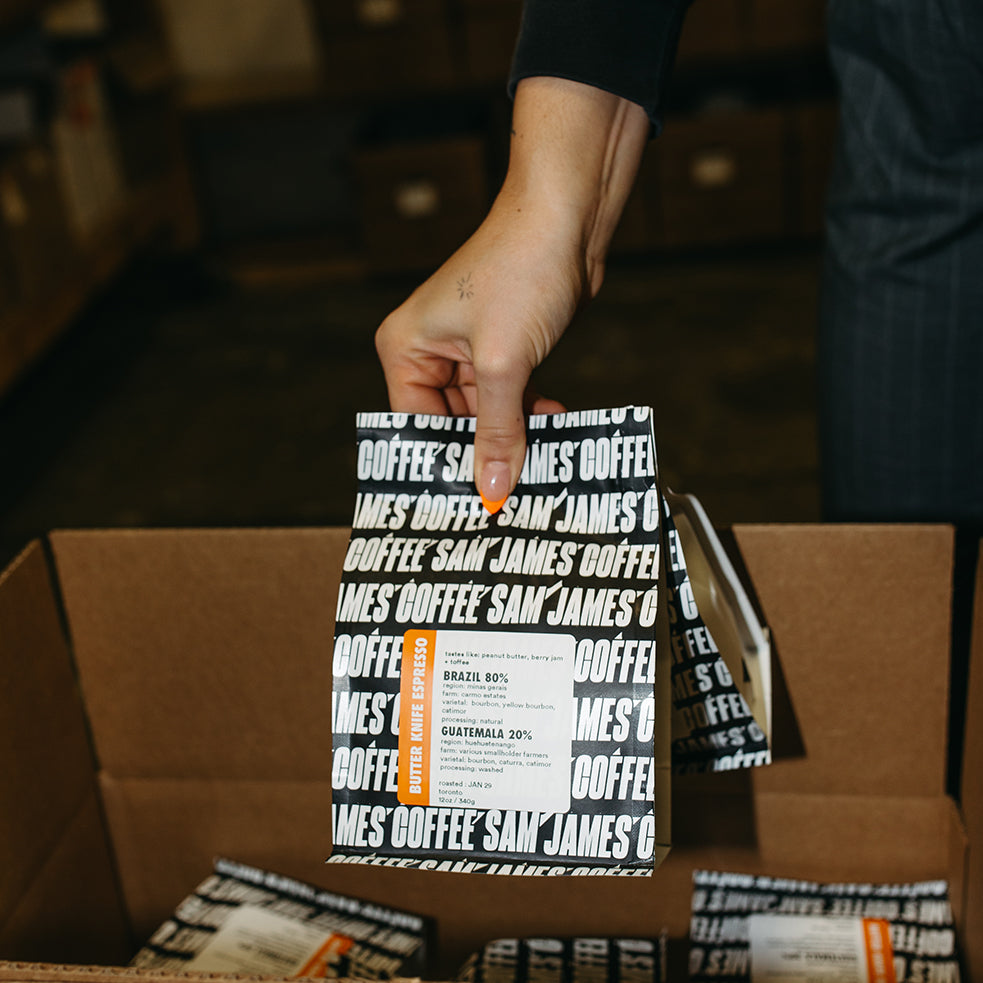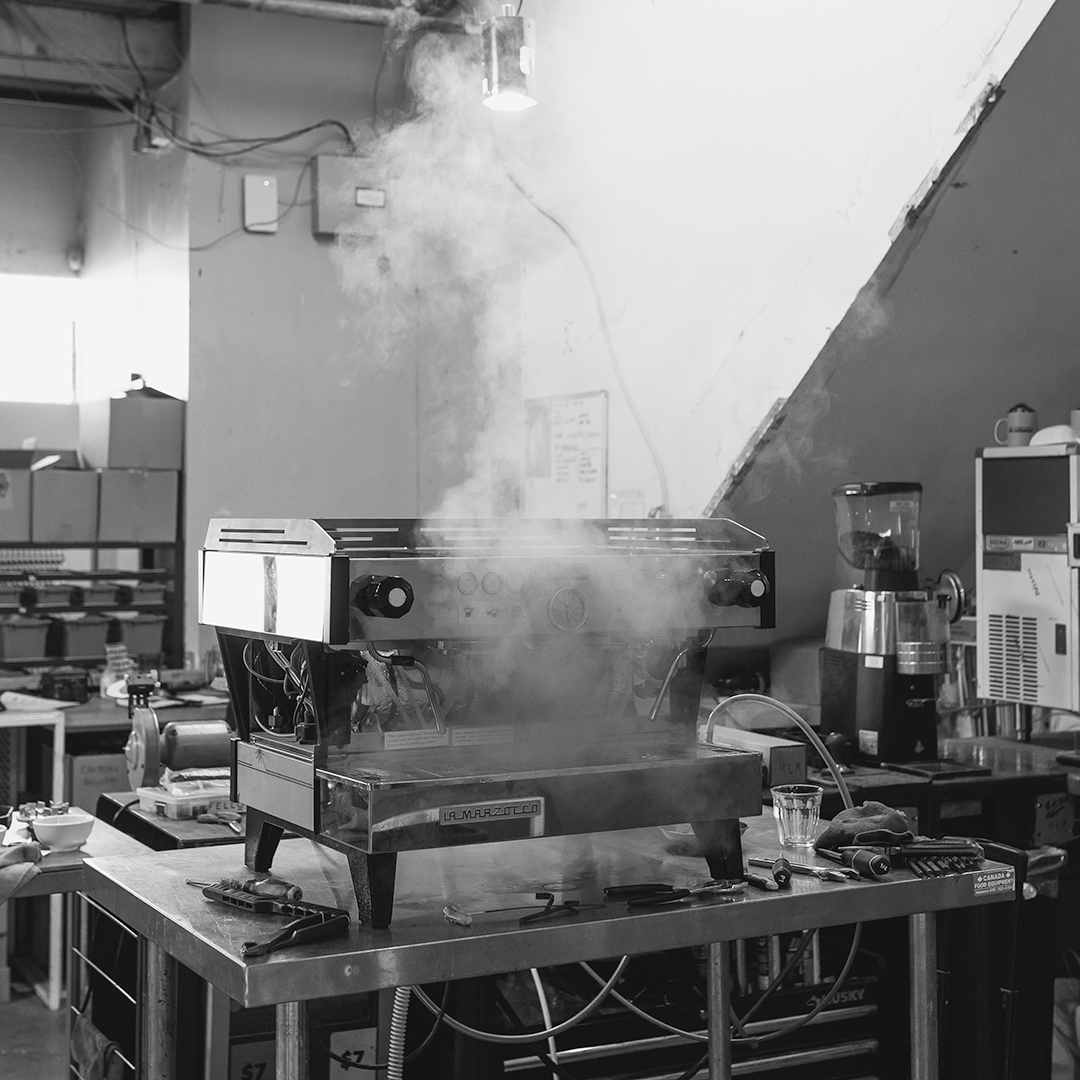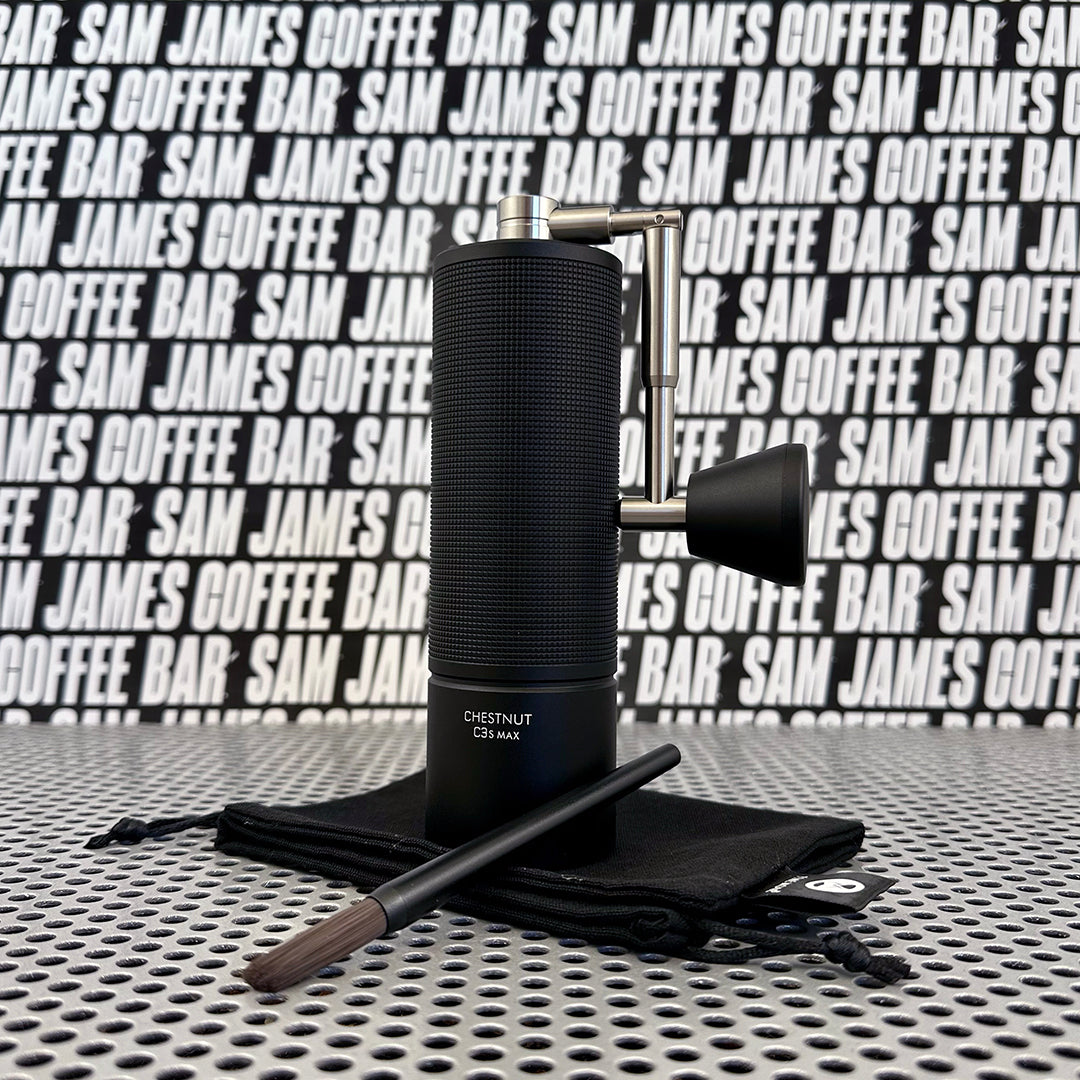FREQUENTLY ASKED QUESTIONS ABOUT COFFEE
We source and roast coffee that is easy to work with.
Our medium roast coffee is versatile, so you can play with the brew to get the results you desire. You can learn more about our roasting here.
For a starting point, try these suggestions. Make sure you use a scale. Coffee and water have differing mass so you can't use volume to measure, ie. a tablespoon or cup:
For espresso, try a 1:2 ratio of coffee to water. We use 18 grams of coffee and get 36 grams of espresso. We recommend 92-94 degrees celsius water temperature.
For filter coffee, we use a 1:16 Ratio for a batch brew. Try 15 grams of coffee to 250 grams of water for one cup.

Don't worry about what others, including us, are doing with the coffee.
Take a sip and decide for yourself how it tastes to you. Think about how you can improve the coffee to suite your own personal preference.
We recommend using a scale so you can control the variable amount of coffee and water and get the same results each time.
Adjust your brew based on your own taste. Use this simple framework. Only adjust one thing at a time.
If your coffee tastes bitter or too strong:
- Use a lower dose
- Try a coarser grind
- Brew with cooler water
If your coffee tastes light or sour:
- Increase your dose
- Use hotter water
- Try grinding finer
- Increase the time water is in contact with the coffee
If your coffee tastes astringent or papery
- lessen the time the water is in contact with the coffee.
ESPRESSO VS. FILTER
CAN I BREW BUTTER KNIFE ESPRESSO IN A NORMAL COFFEE MAKER?
YES! Espresso Roast just means it's roasted a little bit more than a filter coffee.
We do this because an espresso shot is only in contact with water and pressure for 30 seconds so it needs to be a bit more soluble than filter coffee wich can be in contact with water for 5 minutes in a coffee maker.
If you want to use Butter Knife as a filter coffee play around with the dose, grind and time to get the taste you prefer.
Use the framework at the top of the page to get the flavour your prefer.

CAN I USE FILTER COFFEE FOR ESPRESSO?
We separate our espresso from our filter by having blended coffees, 2 coffees blended together to create a balance for espresso and single origin for filter.
Unblended coffees, from a single origin, show off the unique characteristics of that single coffee.
We do roast the filter coffees about 1-2% lighter to highlight some more of the nuances, so if you like the sounds of those tasting notes, you'll be able to detect them when brewing your shots.
We would suggest adjusting your espreso recipe slightly, by adjusting the grind a bit finer to allow for a slower extraction, more like a 40 second shot time, compared to the usual 30.
Try a ratio of 1:2 to start, 18g dry coffee in, 36g of finished espresso beverage out.
You can go up to 40g out if you find it sour. I would also try slightly hotter water if you are able to adjust that on your machine. No hotter than 96 degrees celsius.

GRINDING COFFEE
WHICH GRINDER IS BEST?
A good grinder is more important than any other tool for making coffee.
We recommend setting your budget and looking for a grinder at the top of your price range. It can be tempting to get a cheap blade grinder but we strongly discourage this. Look for a burr grinder instead.
Oftentimes, a manual hand grinder can get you delicious coffee more affordably than an electric one. Currently, we stock this grinder and love it.
We use a Malkohnig EK43 to grind your coffee in shop and for online orders.
If you don't want to buy a grinder, let us do it for you. Make sure to follow the instructions below on how to keep pre ground coffee fresh. This grinder is top of the line but very expensive so we don't recommend it for home use. However, if you'd like to purchase one for your home or café, let us know, we also sell them.

DO BEANS NEED TO REST?
Often, there is a misunderstanding about fresh coffee. Ideally, your coffee should be fresh but not too fresh. Your coffee should be brewed 1-4 weeks after it has been roasted with a sweet spot of 2-3 weeks after roasting.
If your coffee is extremely fresh, (only a couple of days off roast), you can still brew with them but try grinding the coffee and letting it degas for a bit before brewing.
HOW CAN I KEEP MY COFFEE FRESH?
We put a roast date on every bag of coffee so you can always know how long the coffee has been resting for. Opening a bag of coffee is like opening a bottle of wine, it's not going to get any better by keeping it around, you want to drink it as soon as possible.
If the coffee is pre-ground, it becomes stale faster. You can slow the rate of staling by putting your coffee in the freezer as soon as you get it.
We have found that our pre-ground coffee can keep fresh for 4 weeks in your freezer.
This freezing tecnique also works with whole beans. If you buy a 5lb bag and won't use it all within the 4 week window, try freezing half the bag until you are ready to use it.
WHAT GRIND SIZE SHOULD I USE?
Start with this grind guide and adjust your setting based on your taste preference. Use the framework at the top of the page to make decisions on how to calibrate your preference.
- FRENCH PRESS = COARSE (KOSHER SALT)
- STANDARD COFFEE MAKER = MEDIUM COARSE (ROCK SALT)
- AEROPRESS = MEDIUM (COARSE SALT)
- POUR OVER = MEDIUM (TABLE SALT)
- ESPRESSO = FINE (WHITE SUGAR)
- TURKISH COFFEE = (FLOUR)
WATER FOR COFFEE
SHOULD I USE FILTERED WATER?
We recommend looking at the water in your area and making a decision based on that.
If you live in Toronto, the water is hard and needs to be filtered especially if you are using an espresso machine or coffee maker.
Excess minerals in the water will clog your machine. However, don't use distilled water or zero mineral water, as it will also harm your machine.
You can soften water by using a basic Britta type water filter which will also reduce the chlorine flavour.
If you want to go further down the rabbit hole, we recomend buying distilled water or using a Zero Water filter and reintroducing minerals by adding Third Wave Water packets.
If you have a home espresso machine, or are opening a cafe, and have the ability to plum water directly into the machine, we recommend a Vivreau Water filter or a Reverse Osmosis system.
If you're interested in this option please let us know as well sell those as well.
WHAT TEMPERATURE SHOULD MY WATER BE?
If you're making coffee at home, we recommend using water just off boiling for pour over and 92-94 degrees for espresso.
Refer back to our simple framework at the top of this page if you find it doesn't taste right to you and adjust your temperature accordingly.
COFFEE SOURCING
IS OUR COFFEE ORGANIC?
Organic products need to be certified by a third party for us to advertise they are organic.
These certifications vary between countries and are very hard to confirm.
Most of the time, farms we buy from do claim they use organic practices. However, since we can't be sure, we decide to let the flavour of the coffee speak for itself.
IS OUR COFFEE FAIRTRADE?
Fairtrade is a name brand organization that charges people to use their certification.
It's mostly paid for by high volume substandard commercial coffee producers as a marketing ploy.
For instance, the current Fair Trade price for coffee is $1.80 per pound and we pay on average 3X that for our coffee.
We prefer Direct Trade and work with a certified B Corporation named Cafe Imports. They are an established international broker with one of the highest social, ethical and quality reputations in the industry.


